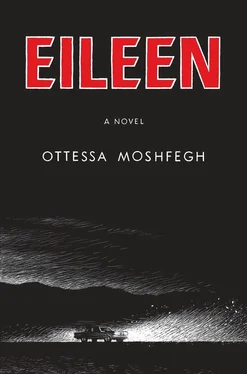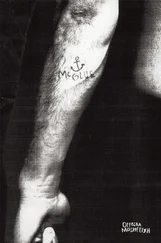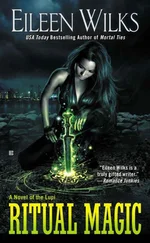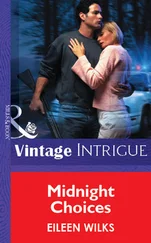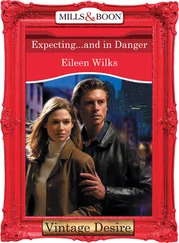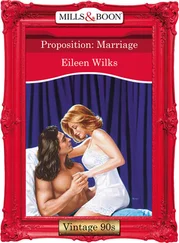“So what’s next, sweetheart?” he said, ignoring me. Rebecca barely looked at him. To my surprise, she put her hand over mine. Hers was hot and light.
“Oh, my stars, you’re absolutely frozen,” she said. “And your hair is wet.” She turned to Sandy. “One beer, please, and maybe also a little whiskey to warm up my girl. What say, huh?” She looked at me and smiled. “I’m so glad you made it out.” She gave my hand a squeeze and leaned back as though to survey me, a funny look on her face. As I unwrapped my cape, she said something like, “Oh my, you look very glamorous.”
I blushed. I was not glamorous. She was being kind, and that embarrassed me. I drank my whiskey. “I thought I’d have a hard time finding the place, but here it is,” she sang, pointing out the stuffed hammerhead on the wall. “Isn’t it funny? It’s sort of sad, actually. Well, not so sad.” She was babbling. The men kept standing up and leaning on the bar next to her, but she didn’t seem to notice them. Somebody played “Mr. Lonely” on the jukebox, the Bobby Vinton song. I always hated that song. I drank my beer in small quick sips as Rebecca complained about the cold, the icy roads, the New England winters. I was grateful just to sit there and be with her and listen to her talk.
After a minute or two, her eyes darted around my face. “You feel all right?”
“Oh yeah, I’m fine,” I said. Rebecca looked at me expectantly, so I thought of anything I could tell her. “There’s something wrong with my car,” is all I came up with in the moment. “So I have to drive with the windows down or else it fills with smoke.”
“That sounds positively awful. Have another whiskey. I insist.” She motioned to Sandy, gestured at our empty glasses. “Can’t your husband get that fixed for you?”
“Oh, I’m not married,” I told her, embarrassed that Sandy could hear me. But of course I wasn’t married. She was teasing me.
“I don’t want to assume. Some people are funny about bachelorettes.” She spoke carefully. “Personally, I don’t see what the big deal is. I’m single myself.” She tickled the stem of her glass with her nails. “I’m just not interested in marriage.”
“Don’t tell that to those guys,” I said, impressed by my own wit. I’d been keeping an eye on the men in the booth as they mumbled secretively to one another, seeming to be weighing their options, planning something. They all looked familiar — they could have been friends of Joanie’s — but I didn’t know their names.
“You’re funny, you know that?” Rebecca went on. “I’ve always been single. And when I have a guy around me, it’s just for fun, and it’s brief. I don’t stay long anywhere, with anything. It’s sort of my modus vivendi, or my pathology — depending on who I’m talking to.” She paused, looked at me. “Who am I talking to? Who am I babbling at?” she widened her eyes comically.
“Eileen,” I answered innocently, then blushed as I realized she’d only been making a joke of my reticence.
I was glad Rebecca wasn’t married or just out to find a husband. That’s what girls did back then — hunted for husbands. I wonder if she ever did get married. I like imagining her with a short, nebbish sort of husband — a Jew most likely — because I think that’s what she’d need, someone intelligent and serious and neurotic, unimpressed by her gregariousness and sparkling repartee. Someone controlling. Sandy set new drinks down in front of me.
“This is all on my tab,” Rebecca said, circling her finger at my glasses.
“It’s on theirs,” said Sandy, nodding toward the table of men.
“Oh, God, no,” said Rebecca. “That won’t do. Here, as a retainer.” She slid a twenty-dollar bill across the counter. Sandy let it sit there and made her another martini, probably the second martini he’d made in his life. I remember these scenes very clearly, and I recount them because I think it says something of how Rebecca appealed to me as a young woman, how she managed to gain my trust. First she solicited my envy, then she worked to extinguish it. By completely dismissing the men at the bar, and then men in general, she put to rest my earlier suspicions about her relationship with Lee Polk, and tempered my fear that she might steal Randy away from me. She sipped her drink, poked at the twenty-dollar bill she’d put down on the bar. “Men and their money.” She knew just what to say. “But enough about me,” she said. “Tell me about you. How long have you worked at Moorehead?”
“Three, four years?” I could barely count. My past seemed to flatten down into nothing in Rebecca’s presence. “It was only going to be temporary, while I moved back here for a bit when my mother was sick,” I explained. “And then she died and I just stayed on at the prison. And time’s just flown by,” I said, escalating my voice to sound chipper, funny.
“Oh no. Oh dear,” Rebecca shook her head. “That sounds absolutely awful. Prison is no place for time to fly. Jeez Louise. And your mother dying. You must be eager to get out of here. Are you?”
“I’m happy here,” I lied, sipping my beer.
“You know, I’m an orphan, too,” said Rebecca. I didn’t bother to correct her, tell her my father was still alive. “My parents both died when I was young. Drowned,” she said. “My uncle raised me out west, where the sun shines. I’ll never understand how you all do it up here winter after winter. Positively creepy, all the darkness, and so cold. It just about drives me mad.” She talked about the ocean, how she loved the beach. Growing up she’d play for hours in the sun and sand, and so on. And then she spoke about her move to Cambridge, how she and her girlfriends rowed boats on the Charles. She praised the foliage, the history, mocked the intellectuals—“the stiffs”—said she was in a “strange love affair with New England.” She never mentioned her studies at Harvard. She said nothing about her professional life at all. “Things feel very real out here, don’t they? There’s simply no fantasy. And no sentimentality. That’s what fascinates me. There is history and pride, but very little imagination here.”
I just listened. I had my whiskey and beer and Rebecca, and I hardly cared to disagree with her assessment of the place, my homeland. I just nodded. But of course she was dead wrong. We New Englanders are uptight for sure, but we have strong minds. We use our imaginations effectively. We don’t waste our brains on magical notions or useless frills, but we do have the ability to fantasize. I could name countless thinkers and writers and artists as examples. And there was me, after all. I was there. But I didn’t say much. I just sat there dumb, twisting my foot to the music. After a while she said, “I’m sorry. I’ve had too much to drink. I tend to talk too much when I drink.”
“That’s all right,” I said, shrugging.
“Better than talking too little,” she said, winking at me. “Only teasing.” She swiveled on her bar stool, jostling my legs before I had a chance to feel offended. “The real silent one is that Leonard Polk. You saw him today?”
I nodded. The coincidence of Rebecca’s new interest in Lee Polk with his mother’s sudden appearance at Moorehead still struck me as odd, but I didn’t feel it was my place to ask questions. I was just a secretary, after all.
“What did you make of that scene with his mother?” Rebecca asked. “Strange,” she squinted at me, “didn’t you think so?”
I shrugged. I suppose I still felt ashamed that I’d spied on the boy in the cave. Even just remembering the look of him through that little window made my heart beat faster — the hands moving under his uniform, his eyes hooded and sleepy. It excited me even then. The shame of arousal, the arousal of shame. “I don’t know,” I began. “Maybe he stopped talking because he had nothing nice to say. You know what they say to children — if you can’t think of anything nice to say, say nothing.”
Читать дальше
